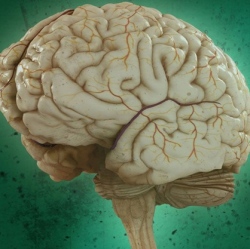
A new study from MIT reveals a gene that is critical to the process of memory extinction (when older memories are replaced with new experiences).
Enhancing the activity of this gene, known as Tet1, might benefit people with posttraumatic stress disorder (PTSD) by making it easier to replace fearful memories with more positive associations, says Li-Huei Tsai, director of MIT’s Picower Institute for Learning and Memory.
The Tet1 gene appears to control a small group of other genes necessary for memory extinction. “If there is a way to significantly boost the expression of these genes, then extinction learning is going to be much more active,” says Tsai, the Picower Professor of Neuroscience at MIT and senior author of a paper appearing in the Sept. 18 issue of the journal Neuron.
The paper’s lead authors are Andrii Rudenko, a postdoc at the Picower Institute, and Meelad Dawlaty, a postdoc at the Whitehead Institute.
Tsai’s team worked with researchers in MIT biology professor Rudolf Jaenisch’s lab at the Whitehead to study mice with the Tet1 gene knocked out. Tet1 and other Tet proteins help regulate the modifications of DNA that determine whether a particular gene will be expressed or not. Tet proteins are very abundant in the brain, which made scientists suspect they might be involved in learning and memory.
To their surprise, the researchers found that mice without Tet1 were perfectly able to form memories and learn new tasks. However, when the team began to study memory extinction, significant differences emerged.
To measure the mice’s ability to extinguish memories, the researchers conditioned the mice to fear a particular cage where they received a mild shock. Once the memory was formed, the researchers then put the mice in the cage but did not deliver the shock. After a while, mice with normal Tet1 levels lost their fear of the cage as new memories replaced the old ones.
